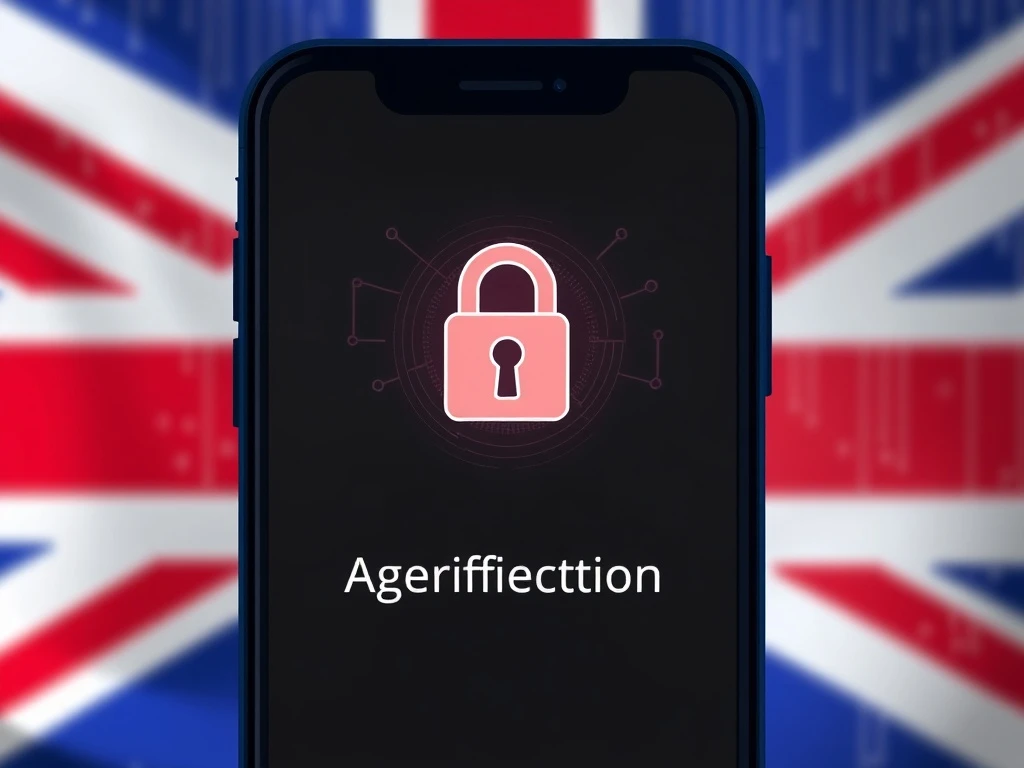Concordium App: Revolutionary Privacy with Anonymous Age Verification Amid UK Rules

The digital world constantly seeks better ways to manage identity and privacy. Recently, a significant advancement emerged from the blockchain space. Layer-1 proof-of-stake blockchain Concordium launched a groundbreaking mobile application. This Concordium app enables users to verify their age without revealing personal identity. This innovation arrives as the UK grapples with new online age verification rules, sparking demand for truly privacy-safe solutions.
Concordium’s Breakthrough in Anonymous Age Verification
Concordium’s new mobile app, available on iOS and Android, fundamentally changes how online age checks work. It utilizes advanced cryptographic technology known as zero-knowledge proofs (ZK-proofs). Essentially, this system allows individuals to prove they possess specific information—like being over 18—without disclosing the actual data. For example, a user can confirm their age without showing their date of birth or any other identifying details. The app generates an encrypted ID. This ID can then be used for age verification on various third-party services. This method offers a strong alternative to traditional, often intrusive, identity-based systems. Concerns about government-mandated verification are indeed growing. Therefore, Concordium frames this launch as a crucial step towards a more private internet.
Boris Bohrer-Bilowitzki, Concordium CEO, highlighted the problem this innovation addresses. He stated, “The truth is that the web has never had a viable age verification system, resulting in piecemeal solutions that are ineffective at best and a privacy risk at worst.” His comments underscore the urgent need for robust, privacy-centric solutions in the digital age. This new application directly tackles these long-standing issues.
Understanding Zero-Knowledge Proofs for Digital Privacy
Zero-knowledge proofs are a powerful cryptographic tool. They allow one party (the prover) to convince another party (the verifier) that a statement is true. Crucially, the prover reveals no information beyond the truth of the statement itself. This concept is highly popular among privacy-focused cryptocurrency developers. For instance, Zcash (ZEC) employs ZK-proofs for anonymous transactions. Decentralized mixers like Tornado Cash also use them to anonymize Ether (ETH) transfers. These applications demonstrate the versatility and security of ZK-proofs in maintaining user privacy.
A Concordium representative explained the practical application of their service. It functions as a consumer mobile application, easily downloadable. Users can create a Concordium ID within the app for a minimal fee, approximately $0.01. This ID then facilitates verification across integrated services. While the app allows verification of attributes such as name, date of birth, nationality, and document type, none of this sensitive information is exposed to service providers. Instead, the ZK-proof simply confirms that a user meets specific requirements, such as being over 18. This ensures maximum privacy while still fulfilling verification needs.
Navigating UK Online Age Checks and Privacy Concerns
The launch of Concordium’s app comes at a critical time, specifically concerning the UK’s new online ID checks. These mandatory checks are for viewing adult content. The definition of ‘adult content’ is broad enough to potentially include platforms like Wikipedia. Privacy advocates have strongly criticized these UK measures. Consequently, VPN apps have seen a surge in popularity across the country. Government officials have even suggested cracking down on VPN usage. The implementation of these new measures became compulsory recently.
UK laws require ID verification for accessing adult content. Significantly, these laws are tech-neutral. Ofcom, the local communication regulator, stated in its guidance document that reusable digital ID wallets sharing an “adult/over-18” attribute are valid. This provision could certainly allow for the use of a ZK-proof-based service. However, it must meet Ofcom’s “highly effective” standard and comply with UK data protection duties. A Concordium spokesperson confirmed active engagement with Ofcom regarding their age verification solutions. This collaboration suggests a potential path for the widespread adoption of privacy-preserving technologies within regulated frameworks.
The Broader Landscape of Privacy-Safe Solutions
Interest in zero-knowledge proofs extends far beyond specialized crypto projects. Mainstream tech giants are also exploring their potential. For example, Google Wallet, Google’s payment and digital card management application, announced in late April an integration of ZK-proofs for age verification. Google highlighted the benefits of this integration. They stated, “This implementation allows us to provide speedy age verification across a wide range of mobile devices, apps and websites.” This move by Google validates the growing recognition of ZK-proofs as a scalable and privacy-friendly solution for identity challenges.
The emergence of solutions like the Concordium app marks a pivotal moment. It signifies a shift towards more user-centric identity management. Instead of centralized databases holding vast amounts of personal data, decentralized and privacy-preserving methods are gaining traction. This approach empowers individuals. It allows them to control their digital identities. The ongoing debate around privacy and regulation, particularly with the new UK online age checks, underscores the importance of these innovations. Ultimately, technology that protects user data while enabling necessary verification will shape the future of the internet. Such solutions represent a significant leap forward in balancing security with individual liberty in the digital realm.







